#GivingTuesday is an exciting evolution in our age of consumerism. After the pandemonium of Black Friday, Small Business Saturday, and Cyber Monday, we are encouraged to think about giving on Tuesday. There are many wonderful organizations and causes you can support on #GivingTuesday - the possibilities are endless. I hope you pick at least one cause you care about, or (even better) several.
I’d invite you to think really BIG on this #GivingTuesday by supporting a cause for which I’m incredibly passionate about – childhood cancer. This disease affects more than 16,000 children a year. It could be your daughter or a grandson; your son’s best friend or a girl in your congregation. Childhood cancer is a BIG deal because it affects all of us. I care so much about this because I was one of those children.
When I was 15 years old I was diagnosed with Hodgkin’s Lymphoma – by my own father. Can you imagine? His diagnosis was confirmed by Dr. Edwin Forman, who became a hero and mentor to me as I pursued medicine as a profession.
Inspired by the compassionate care I witnessed, I was drawn to treating childhood cancer. I ultimately became a pediatric oncologist and genetic researcher. Not only do I want to improve cancer treatments, but I want to stop kids from getting cancer altogether. Insights can come from the strangest places, and little did I know a BIG insight would come from one of the BIGGEST land mammals on the planet – the elephant.
In the summer of 2012, I was attending an evolution and medicine conference and learned that elephants rarely develop cancer and this may be because they have extra copies of the gene called TP53. I was intrigued because I care for children with Li-Fraumeni Syndrome, a rare condition where they are missing TP53 and have nearly a 100% lifetime risk of cancer. This was an “aha” moment for me because I realized we should focus more on cancer resistance instead of just cancer risk.
I immediately wanted to collaborate with the speaker at the conference, Dr. Carlo Maley. We wanted to understand how these extra copies of the TP53 gene, known as the “guardian of the genome,” could possibly prevent cancer in elephants, and maybe one day in humans, too! We started working with Utah’s Hogle Zoo to get regular elephant blood to study and do functional DNA repair experiments. We also partnered with the Ringling Bros. and Barnum & Bailey Circus to get more diverse samples and build a productive partnership with their Center for Elephant Conservation.
You might have heard the BIG news last month that made the cover of Newsweek magazine about how this research with elephants could help us in our battle to end childhood cancer. We have not found the cure to cancer, but we think we’ve discovered the mechanism for how elephants are protected from cancer. We want to work as hard – and as fast – as we can to see if we can apply this discovery to humans. One child with cancer is one child too many!
This research is expensive and requires significant philanthropic funding. That’s where your donation for #GivingTuesday can help. I hope that knowing you could make a BIG difference by supporting this research will inspire you to give. Your support can help us understand and apply how the natural resistance elephants have to cancer could lead to new treatments for kids. I’m eager to learn what 55 million years of elephant evolution can teach us about preventing and eliminating cancer in our children.
Please help me by giving BIG to this important cause on #GivingTuesday.
>>Donate Today<<
About the Author
Share This Article
Search Our Blog
Our Instagram
 primarychildrens
258
Likes
primarychildrens
258
Likes
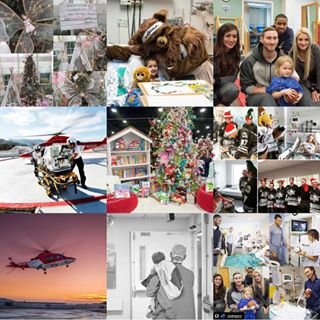 primarychildrens
210
Likes
1
Comments
primarychildrens
210
Likes
1
Comments
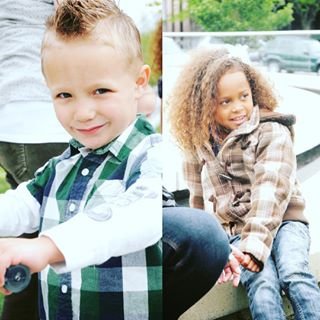 primarychildrens
223
Likes
primarychildrens
223
Likes
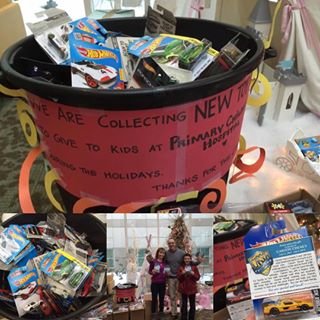 primarychildrens
250
Likes
2
Comments
primarychildrens
250
Likes
2
Comments
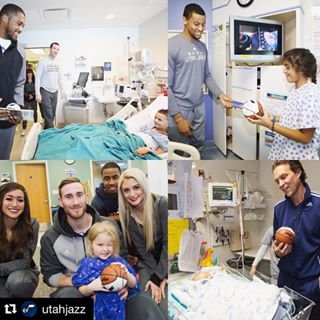 primarychildrens
401
Likes
5
Comments
primarychildrens
401
Likes
5
Comments
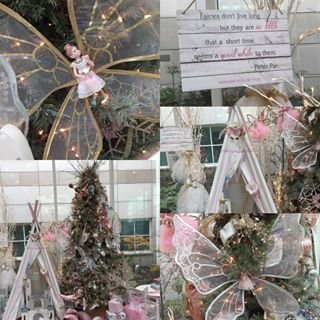 primarychildrens
328
Likes
2
Comments
primarychildrens
328
Likes
2
Comments
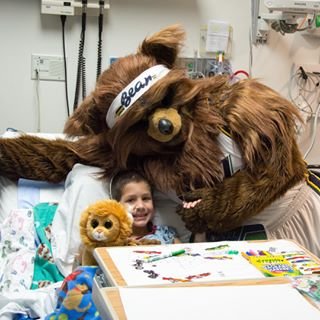 primarychildrens
307
Likes
8
Comments
primarychildrens
307
Likes
8
Comments
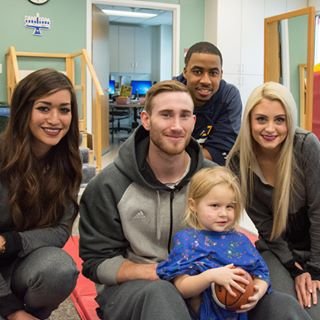 primarychildrens
150
Likes
primarychildrens
150
Likes

Recent Posts
- Pediatric Liver Transplant Program Celebrates 200 Lives Saved and 20 Years December 30, 2015
- Is it the Cold or the Flu? December 18, 2015
- Play it Safe Outside this Winter December 15, 2015
- 10 Tips for Choosing Safe Toys this Christmas + [Infographic] December 10, 2015
- The Air We Breathe: Protecting Your Kids During an Inversion December 3, 2015
Our Most Popular Posts
 Why Kids Shouldn’t Wear Bulky Coats in Car Seats 137 views
Why Kids Shouldn’t Wear Bulky Coats in Car Seats 137 views  Pediatric Liver Transplant Program Celebrates 200 Lives Saved and 20 Years 18 views
Pediatric Liver Transplant Program Celebrates 200 Lives Saved and 20 Years 18 views  Play it Safe Outside this Winter 15 views
Play it Safe Outside this Winter 15 views  “It Takes an Army of Heroes . . . ” A Parent’s Perspective on Tragedy 14 views
“It Takes an Army of Heroes . . . ” A Parent’s Perspective on Tragedy 14 views  Get Your Head in the Game: 4 Steps to Fight the Flu 14 views
Get Your Head in the Game: 4 Steps to Fight the Flu 14 views  How the Melody Valve Minimizes Time on the Bench 14 views
How the Melody Valve Minimizes Time on the Bench 14 views  7 Tips for Safe Trick-or-Treating this Halloween 14 views
7 Tips for Safe Trick-or-Treating this Halloween 14 views  On Childhood Cancer: Perspectives of a Pediatric Oncologist 14 views
On Childhood Cancer: Perspectives of a Pediatric Oncologist 14 views  Children with Trisomy 13 and 18 attend special Primary Children’s clinic 13 views
Children with Trisomy 13 and 18 attend special Primary Children’s clinic 13 views  McKay’s “Magic Ears”: How Our Audiology Team Helped Him Hear Again 13 views
McKay’s “Magic Ears”: How Our Audiology Team Helped Him Hear Again 13 views
Archives
- December 2015 (5)
- November 2015 (8)
- October 2015 (8)
- September 2015 (2)
- August 2015 (1)
- July 2015 (3)
- June 2015 (2)
- May 2015 (2)
- March 2015 (3)
- February 2015 (2)
- January 2015 (2)
- November 2014 (1)
- October 2014 (1)
- September 2014 (3)
- August 2014 (2)
- July 2014 (4)
- June 2014 (2)
- May 2014 (4)
- April 2014 (6)
- March 2014 (4)
- February 2014 (1)
- September 2013 (1)
- February 2013 (1)
- June 2012 (1)

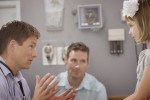












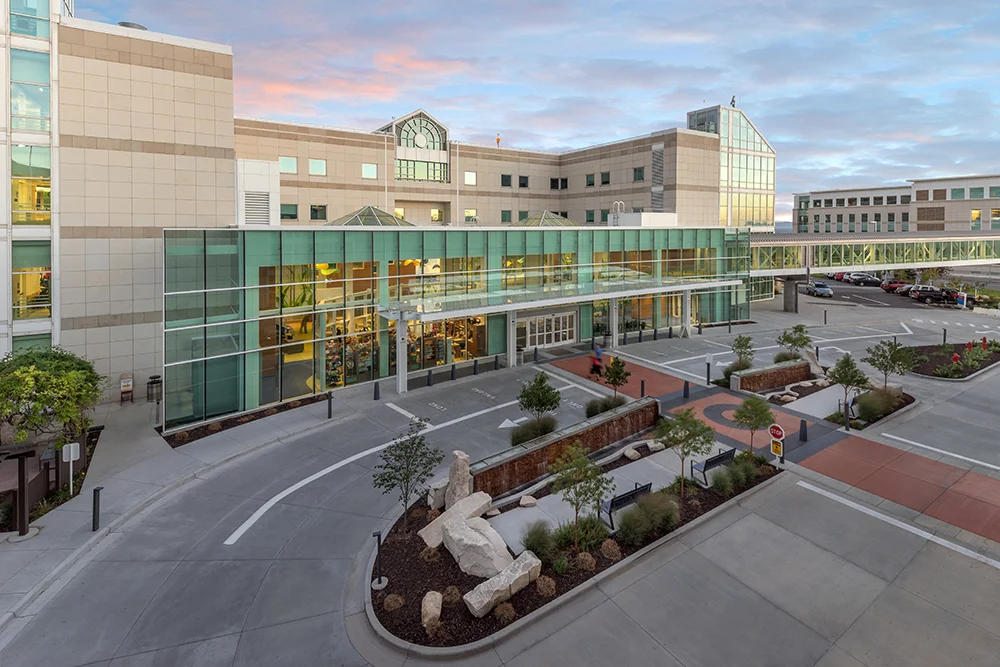
Add comment